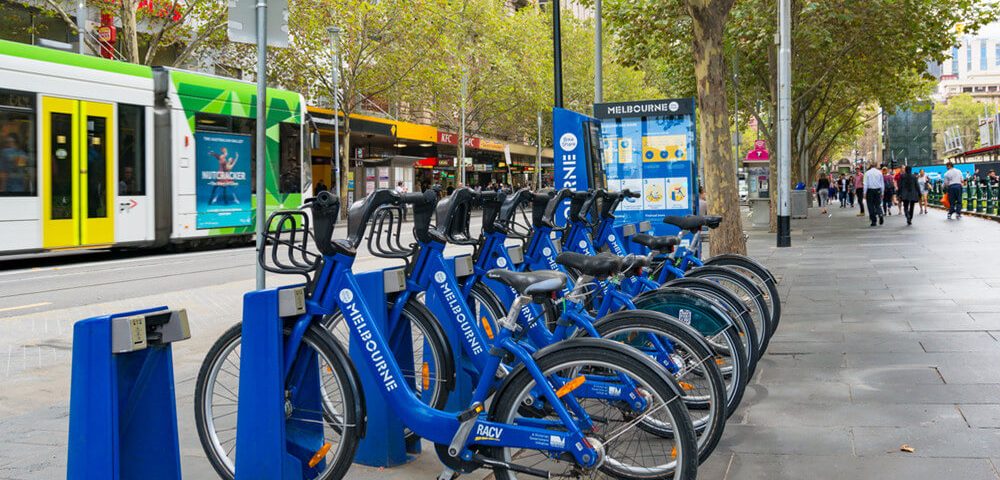
It’s easy to drive or cycle in Melbourne as an international student. However, there are certain rules you need to obey in order to travel safely not just for you, but also for the community.
Driver’s License
If you hold a valid driver license issued under the law of another country a “foreign drivers license”, you ARE allowed to drive any class of motor vehicle authorised on that license in Victoria along with your passport. You must have the license with you at all times when driving and immediately show the license to a police officer when asked to do so. You must not drive in Victoria when:
• your license is no longer a valid license or
• your authority to drive in Victoria on that license has been suspended or
• your authority to drive in Victoria on your driver’s license has been withdrawn
If your license is in a language other than English you should carry an official English translation of your license while driving. (see box “Obtaining Official Translation”). You MUST familiarise yourself with the Victoria road rules before attempting to drive in Victoria. If you breach any traffic regulations your privilege to drive in Victoria can be taken away.
• your license is no longer a valid license or
• your authority to drive in Victoria on that license has been suspended or
• your authority to drive in Victoria on your driver’s license has been withdrawn
If your license is in a language other than English you should carry an official English translation of your license while driving. (see box “Obtaining Official Translation”). You MUST familiarise yourself with the Victoria road rules before attempting to drive in Victoria. If you breach any traffic regulations your privilege to drive in Victoria can be taken away.
Getting a driver license
If you do not have a driver’s license and will be in Australia for more than 6 months you can apply to obtain Victorian Driver License, including a learner license. You maybe asked in your application to state your reasons for wanting a Vic license. Study “Your Keys to Driving in Vic” booklet.
This information can be accessed on:
• Vicroads
• passport & foreign driver license, if held, which is required to be in English. If it is not in English, you must carry an official translation of your license while driving.
• give proof of your place of residence in Victoria.
• pass a written test on the Victoria road rules you may also be asked to do he following:
• pass an eyesight test and
• arrange a practical driving test appointment and
• take a practical driving test after paying the test fee.
This information can be accessed on:
• Vicroads
• passport & foreign driver license, if held, which is required to be in English. If it is not in English, you must carry an official translation of your license while driving.
• give proof of your place of residence in Victoria.
• pass a written test on the Victoria road rules you may also be asked to do he following:
• pass an eyesight test and
• arrange a practical driving test appointment and
• take a practical driving test after paying the test fee.
Buying a car
Before you get carried away thinking about yourself behind the wheel of your dream car, get real and consider the cost.
Cars aren’t cheap
Owning a car isn’t cheap, running and maintenance cost can include:
• registration fee (every car must be registered to be on the road)
• annual insurance premiums (varies according to type of vehicle & policy)
• regular maintenance
• unexpected repairs
• petrol (every week)
• parking
Cars aren’t cheap
Owning a car isn’t cheap, running and maintenance cost can include:
• registration fee (every car must be registered to be on the road)
• annual insurance premiums (varies according to type of vehicle & policy)
• regular maintenance
• unexpected repairs
• petrol (every week)
• parking
Insurance
CTP – Compulsory Third Party Insurance is paid as part of your annual registration fee. CTP insurance protects you against any claims that could arise because of death or injury to another person, caused by the negligence of anyone driving your car. CTP does NOT cover damage to vehicles or property. It is advisable to purchase Third Party Liability Insurance. This covers any damage caused to someone else’s property, but does not cover the repair bill to your own car. This is the cheapest form of voluntary insurance you can buy and is good for older cars. Fire & theft cover is optional with this policy. Full Car insurance or Comprehensive insurance gives you the greatest protection but cost the most. Shop around for the best value.
Buying from a licensed dealer
There are different steps while buying a registered car privately or buying from a motor dealer.
This is a summary of RACV’s Car Buyer’s Guide*. The ten points listed here provide a limited checklist of things you need to know before purchasing a car.
• Buy the type, make and model of car that best suits your needs and your pocket. It is best to buy from a licensed dealer.
• Always have a used car inspected by a qualified person you can trust, before you decide to buy it. It’s your only protection against buying a “bomb.” Don’t rely on the road worthiness certificate.
• Don’t rush to buy your car, as you may regret it.
• Ignore any promise, warranty or guarantee that isn’t in writing, or that is conditional in any way.
• Don’t forget the “REVS” Certificate!
• Never sign any contract or document until it is complete, you have thoroughly read and understood it, you are sure you want the car, can afford it, and it is in the condition you are prepared to accept. Once you sign it, it’s yours.
• Always get a copy of any contract you sign and a copy of the roadworthiness certificate.
• Never accept a loan or finance agreement just because it’s quick, easy or convenient; it may be at a high interest rate. Have reliable finance arranged before buying your car (e.g. through your bank).
• Insure your car with a company you feel you can trust to give you good value-for-money cover and an efficient claims service.
• When you’re buying your first car, it’s so easy to get excited about the first one you see. But be careful. Put your heart in the back seat and let your head do the driving. Consider the many important points like warranty, price and condition. It’s great to buy a car that looks good, but it’s even better to buy one that suits your pocket and is reliable.
For further information access the following website: http://www.racv.com.au
This is a summary of RACV’s Car Buyer’s Guide*. The ten points listed here provide a limited checklist of things you need to know before purchasing a car.
• Buy the type, make and model of car that best suits your needs and your pocket. It is best to buy from a licensed dealer.
• Always have a used car inspected by a qualified person you can trust, before you decide to buy it. It’s your only protection against buying a “bomb.” Don’t rely on the road worthiness certificate.
• Don’t rush to buy your car, as you may regret it.
• Ignore any promise, warranty or guarantee that isn’t in writing, or that is conditional in any way.
• Don’t forget the “REVS” Certificate!
• Never sign any contract or document until it is complete, you have thoroughly read and understood it, you are sure you want the car, can afford it, and it is in the condition you are prepared to accept. Once you sign it, it’s yours.
• Always get a copy of any contract you sign and a copy of the roadworthiness certificate.
• Never accept a loan or finance agreement just because it’s quick, easy or convenient; it may be at a high interest rate. Have reliable finance arranged before buying your car (e.g. through your bank).
• Insure your car with a company you feel you can trust to give you good value-for-money cover and an efficient claims service.
• When you’re buying your first car, it’s so easy to get excited about the first one you see. But be careful. Put your heart in the back seat and let your head do the driving. Consider the many important points like warranty, price and condition. It’s great to buy a car that looks good, but it’s even better to buy one that suits your pocket and is reliable.
For further information access the following website: http://www.racv.com.au
Cycling
Cycling is a healthy, cheap and environmentally friendly alternative mode of transport. Melbourne City Council he benefits of recreational and commuter cycling. The Council has built more than 350 km of bikeways and 3000 km of footpaths across the City for easy travel and enjoyable recreation.
